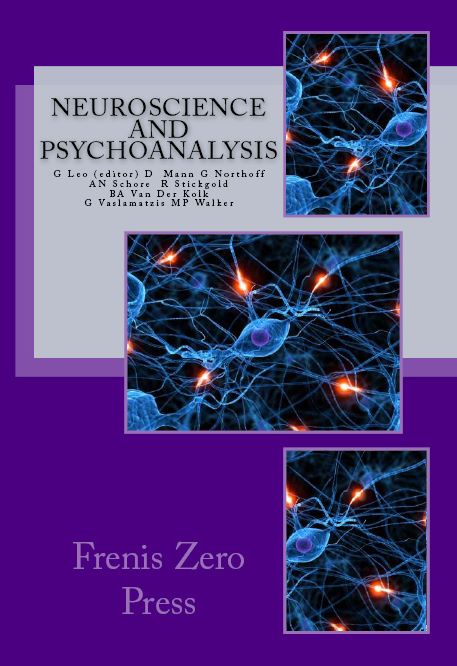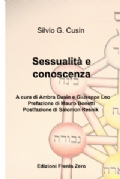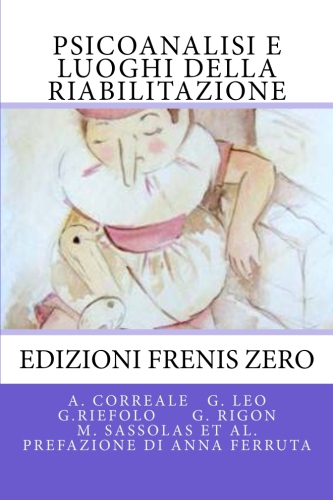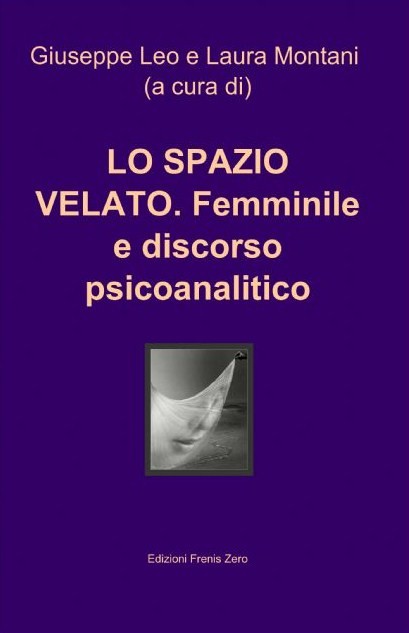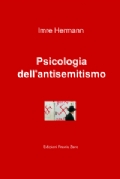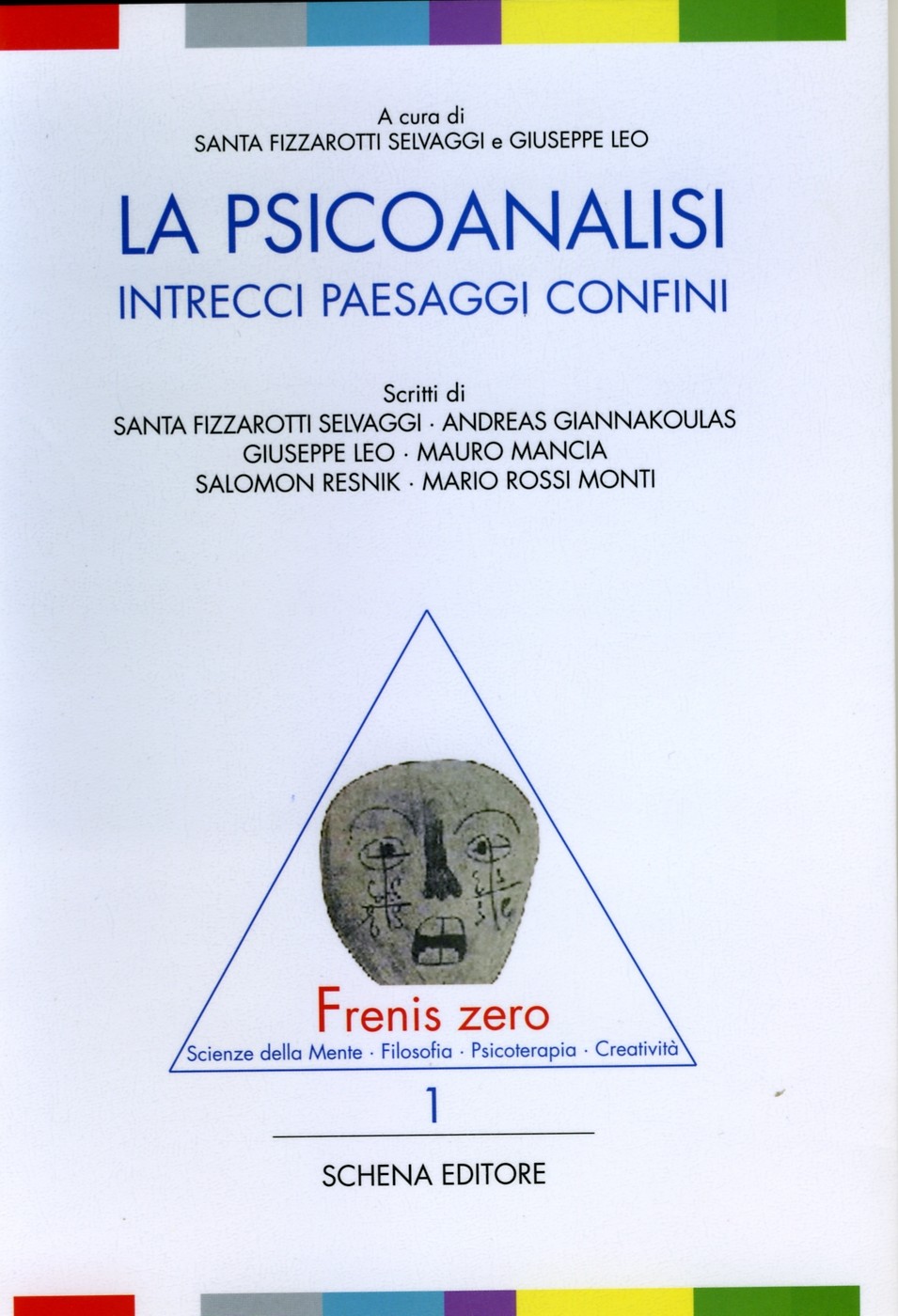|
Bibliografia
1.
Israeli
Ministry of Foreign Affairs [http://www.mfa.gov.il] webcite
(accessed
10 April 2006)
2.
Schlenger
WE, Caddell JM, Ebert L, Jordan BK, Rourke KM, Wilson D, et
al.: Psychological
reactions to terrorist attacks: Findings from the national study
of American's reactions to September 11.
JAMA 2002, 288:581-588. PubMed Abstract | Publisher Full Text

3.
Galea
S, Ahern J, Resnick H, Kilpatrick D, Kilpatrick D, Bucuvalas M,
Gold J, Vlahov D:Psychological
sequelae of the September 11 terrorist attacks in New York City.
New
Engl J Med 2002, 346(13):982-987. PubMed Abstract | Publisher Full Text

4.
Cohen
Silver R, Holman A, McIntosh DN, Poulin M, Gil-Rivas V: Nationwide
longitudinal study of psychological responses to September 11.
JAMA 2002, 288:1235-1244. PubMed Abstract | Publisher Full Text

5.
Baca
E, Baca-Garcia E, Perez-Rodriguea MM, Cabanas ML: Short
and long-term effects of terrorist attacksin Spain. In The
Trauma of Terrorism. Edited by Danieli Y, Brom D, Sills
J. Binghampton NY: The Haworth Maltreatment and Trauma Press;
2005:157-170.

6.
Jehel
L, Paternity S, Brunet S, Duchet C, Guelfi JD: Predictions
of the occurrence and intensity of post-traumatic stress disorder
in victims 32 months after bomb attack.
Eur
J Psychiatry 2003, 18:172-176. Publisher Full Text

7.
Verger
P, Dab W, Lamping D, Loze JY, Deschaseaux-Voinet C, Abenhaim L,
Rouillon F: The
psychological impact of terrorism: An epidemiologic study of
posttraumatic stress disorder and associated factors in victims of
the 1995–1996 bombings in France.
Am
J Psychiatry 2004, 161:1384-1389. PubMed Abstract | Publisher Full Text

8.
Curran
PS: Psychiatric
aspects of terrorist violence: Northern Ireland 1969–1987.
Br
J Psychiatry 1988, 153:470-475. PubMed Abstract

9.
Khaled
N: Psychological
effects of terrorist attacks in Algeria. In The
Trauma of Terrorism. Edited by Danieli Y, Brom D, Sills
J. Binghampton, NY: The Haworth Maltreatment and Trauma Press;
2005.

10.
Somasundaram
D: Short
and long term effects on the victims of terror in Sri-Lanka.In The
Trauma of Terrorism. Edited by Danieli Y, Brom D, Sills
J. Binghampton, NY: The Haworth Maltreatment and Trauma Press;
2005:157-170.

11.
Wooding
S, Raphael B: Psychological
impact of disasters and terrorism on children and adolescents:
experiences from Australia.
Prehospital
Disaster 2004, 19:10-20.

12.
Lykes
M: Terror,
silencing and children: International, multidisciplinary
collaboration with Guatemalan Maya communities.
Soc
Sci Med 1994, 38:543-552. PubMed Abstract | Publisher Full Text

13.
Ohtani
T, Iwanami A, Kasai K, Yamasue H, Kato T, Sasaki T, Kato N: Post-traumatic
stress disorder symptoms in victims of Tokyo subway attack: a
5-year follow-up study.
Psychiatry
Clin Neurosci 2004, 58:624-629. PubMed Abstract | Publisher Full Text

14.
Rubin
GJ, Brewin C, Greenberg N, Simpson J, Wesseley S: Psychological
and behavioral reactions to the bombings in London on 7 July 2005:
Cross sectional survey of a representative sample of Londoners.
BMJ 2005,
606. PubMed Abstract | Publisher Full Text | PubMed Central Full Text

15.
Bleich
A, Gelkopf M, Solomon Z: Exposure
to terrorism, stress-related mental health symptoms, and coping
behaviors among a nationally representative sample in Israel.
JAMA 2003, 290:612-620. PubMed Abstract | Publisher Full Text

16.
Bonanno
GA: Loss,
trauma, and human resilience.
Am
Psychol 2004, 59:20-28. PubMed Abstract | Publisher Full Text

17.
Hanson
RF, Kilpatrick DG, Freedy JR, Saunders BE: Los
Angeles County after the 1992 civil disturbance: Degree of
exposure and impact on mental health.
J
Consult Clin Psychol 1995, 63:987-996. PubMed Abstract | Publisher Full Text

18.
Bryant
RA, Harvey AG, Guthry RM, Moulds ML: A
prospective study on psychophysiological arousal, acute stress
disorder and posttraumatic stress disorder.
J
Abnorm Psychol 2002, 109:341-344. Publisher Full Text

19.
Sutker
PB, Davis JM, Uddo M, Ditta SR: War
zone stress, personal resources, and PTSD in Persian Gulf War
returnees.
J
Abnorm Psychol 1995, 104:444-452. PubMed Abstract | Publisher Full Text

20.
Bonanno
GA, Rennicke C, Dekel S: Self-enhancement
among high-exposure survivors of the September 11th terrorist
attack: Resilience or social maladjustment?
J
Pers Soc Psychol 2005, 88:984-998. PubMed Abstract | Publisher Full Text

21.
Central
Bureau of statistics Web site. 2004 [http://www.cbs.gov.il] webcite
(accessed
10 April 2006)
22.
Cardena
E, Koopman C, Classen C, Waelde LC, Spiegel D: Psychometric
properties of the Stanford acute stress reaction questionnaire (SASRQ).
J
Traumatic Stress 2000, 13:719-734. Publisher Full Text

23.
Saigh
PA: The
Children's Future Orientation Scale. New York: City
University of New York Graduate School; 1997.

24.
Vaux
A, Philips J, Holly L, Thomson B, Williams D, Stewart D: The
social support appraisal scale: studies of reliability and
validity.
Am
J Comm Psychol 1986, 14:195-219. Publisher Full Text

25.
Solomon
Z: Coping
With War Induced Stress. The Gulf war and the Israeli response. New
York: Plentum Press; 1995.
26.
Durkheim
E: Le
Suicide [English translation, 1951]. Glencoe, Il:
Free Press; 1897.
27.
Solomon
S, Greenberg J, Pyszezynsky T: Pride
and prejudice: Fear of death and social behavior.
Curr
Dir Psychol Sci 2000, 9:200-204. Publisher Full Text

28.
Hobfoll
SE, Canetti-Nisim D, Johnson RJ: Exposure
to terrorism, stress-related mental health symptoms, and defensive
coping among Jews and Arabs in Israel.
J
Consult Clin Psychol 2006, 74(2):207-18. PubMed Abstract | Publisher Full Text

29.
Kessler
RC, Sonnega A, Bromet E, Hughes M, Nelson CB: Posttraumatic
stress disorder in the national comorbidity survey.
Arch
Gen Psychiatry 1995, 52:1048-1060. PubMed Abstract

30.
Stuber
J, Resnick H, Galea S: Gender
disparities in posttraumatic stress disorder after mass trauma.
Gend
Med 2006, 3:54-67. PubMed Abstract | Publisher Full Text

31.
Solomon
Z, Gelkopf M, Bleich A: Is
terrorism gender blind? Gender differences in reaction to terror
events.
Soc
Psychiatry Psychiatr Epidemiol 2005, 40:947-54. PubMed Abstract | Publisher Full Text

32.
Somers
E, Or-Chen K, Peled AM: When
my people fight my country: Expsoure to terror, distress and
coping among Israeli Arabs. In Mental
Health in Terror's Shadow: The Israeli Experience.
Edited by Somer E, Bleich A. Tel Aviv: Ramot-Tel Aviv University
(In Hebrew); 2005.

33.
Lavi
T, Solomon Z: Palestinian
youth of the Intifada: PTSD and future orientation.
J
Am Acad Child Adolesc Psychiatry 2005, 44:1176-1183. PubMed Abstract |Publisher Full Text

34.
Musallam
N, Ginzburg K, Lev-Shalem L, Solomon Z: The
psychological effects of Intifada Al Aqsa: acute stress disorder
and distress in Palestinian-Israeli students.
Isr
J Psychiatry Relat Sci 2005, 42:96-105. PubMed Abstract

35.
Brewin
CR, Andrews B, Valentine JD: Meta-analysis
of risk factors for posttraumatic stress disorder in
trauma-exposed adults.
J
Consult Clin Psychol 2005, 68:748-766.

36.
Norris
FH, Friedman MJ, Watson PJ, Byrne CM, Diaz E, Kaniasty K: 60000
disaster victims speak: Part I and II. An empirical review of the
empirical literature, 1981–2001.
Psychiatry 2002, 65:207-260. PubMed Abstract

37.
Hobfoll
SE: The
Ecology of Stress. New York: Hemisphere publishing
cooperation; 1998.

38.
Livanou
M, Basoglu M, Salcioglu E, Kalendar D: Traumatic
stress responses in treatment-seeking earthquake survivors in
Turkey.
J
Nerv Ment Dis 2002, 190:816-823. PubMed Abstract | Publisher Full Text

39.
Shalev
AY, Freedman S: PTSD
following terrorist attacks: a prospective evaluation.
Am
J Psychiatry 2005, 162:1188-1191. PubMed Abstract | Publisher Full Text

40.
Shalev
A, Tuval R, Frenkiel-Fishman S, Hadar H, Eth S: Psychological
responses to continuous terror: A study of two communities in
Israel.
Am
J Psychiatry 2006, 163:667-673. PubMed Abstract | Publisher Full Text

|




 (in
English) Abstract
(in
English) Abstract